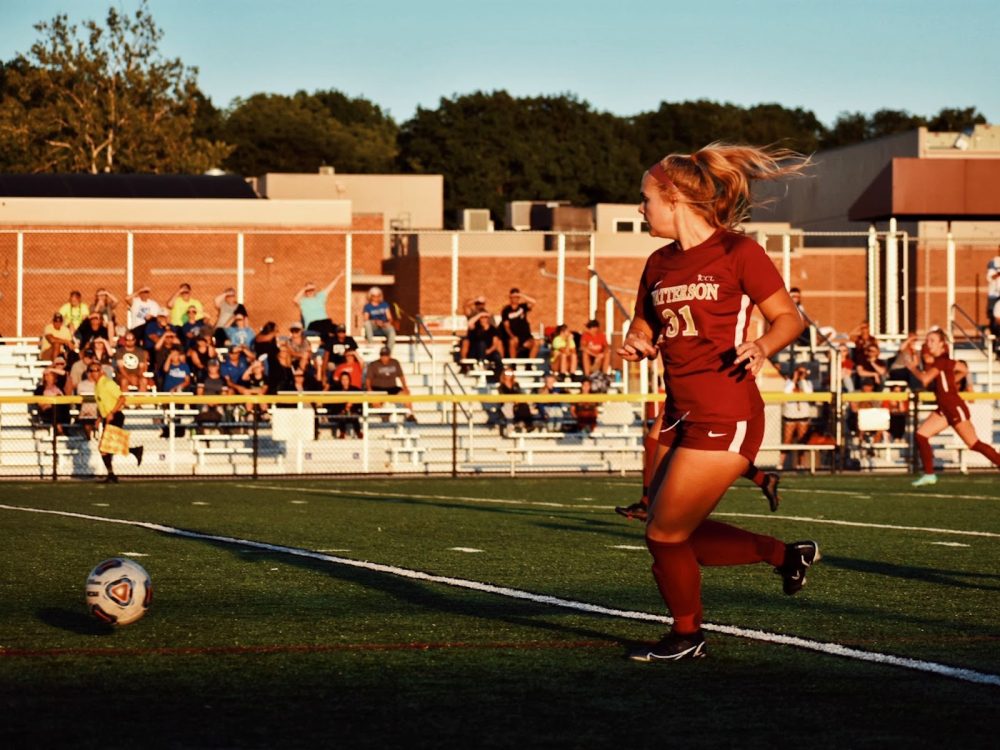
From Tots to Teens: Building Lifelong Hobbies and Sports for Growing Minds
This is a collaborative post
Navigating the journey from early childhood through the teenage years, the cultivation of hobbies and sports plays a pivotal role in shaping young minds.
Photo by leah hetteberg on Unsplash
This period of growth is not just about physical changes; it’s a time when interests, passions, and skills are formed and nurtured.
As children evolve into adolescents, their engagement in various activities lays the foundation for lifelong habits and preferences.
Balancing the need for structured learning with the freedom of creative expression, these activities are instrumental in developing well-rounded individuals.
They foster not just physical and cognitive abilities, but also social skills, discipline, and a sense of self-worth, making the journey from tots to teens a remarkable adventure in personal development.
The Importance of Hobbies and Sports in Early Development
Engaging children in hobbies and sports from a young age offers numerous benefits. These activities aid in the physical, mental, and social development of a child, laying the foundation for a well-rounded and healthy lifestyle.
- Physical Development: Sports and physical hobbies help in building strength, coordination, and overall fitness. They also instill the importance of a healthy lifestyle.
- Mental Development: Hobbies, especially those that are creative or strategic, encourage cognitive development. They enhance problem-solving skills, creativity, and focus.
- Social Skills: Participating in group activities and sports helps in developing social skills. Children learn about teamwork, communication, and sportsmanship.
Tailoring Activities to Different Age Groups
It’s essential to select hobbies and sports that are age-appropriate. This ensures that the activities are both enjoyable and beneficial for the child’s stage of development.
- Toddlers (Ages 1-3): Activities for toddlers should focus on exploration and basic skill development. Simple sports like running, jumping, or swimming, and hobbies like painting or music can be introduced.
- Young Children (Ages 4-7): At this age, children have better motor skills and can engage in more structured activities. Sports like soccer, gymnastics, and basic martial arts, and hobbies like building models or simple musical instruments are appropriate.
- Older Children (Ages 8-12): Older children can handle more complex activities. Sports like basketball, tennis, and golf (with proper golf club selection), and hobbies like coding, chess, or crafting are suitable.
- Teens (Ages 13-18): Teenagers can participate in almost any sport or hobby. They can be encouraged to pursue their interests, whether it’s advanced sports, music, art, or technology.
Introducing Golf: A Sport for All Ages
Golf is a sport that can be enjoyed at any age. It offers a unique blend of physical activity, mental challenge, and social interaction. Proper golf club selection is crucial for young players to ensure they enjoy the game and develop their skills effectively.
- Golf Club Selection for Young Players: Choosing the right golf clubs for children is essential. Clubs should be the right size, weight, and design for the child’s age and physical ability.
- Toddlers and Young Children: Begin with lightweight, plastic golf clubs that are easy to handle.
- Older Children: As children grow, they can transition to junior golf clubs, which are designed for their size and strength.
- Teens: Teenagers can start using adult clubs, but it’s important to ensure they are not too heavy or long.
Encouraging a Variety of Hobbies and Sports
It’s beneficial for children to be exposed to a variety of hobbies and sports. This not only helps them find their passion but also develops a range of skills and interests.
- Try Different Sports: Let children experiment with various sports to see what they enjoy and excel at. This could range from team sports like soccer and basketball to individual sports like tennis or swimming.
- Explore Creative Hobbies: Encourage children to try different creative hobbies like painting, music, dance, or writing. These activities foster creativity and can be a source of emotional expression and relaxation.
Building a Supportive Environment
The role of parents, guardians, and educators is paramount in nurturing a child’s interest in hobbies and sports. A supportive environment plays a crucial role in enhancing a child’s engagement and joy in these activities.
Ensuring children have access to the necessary resources is a fundamental step. This access can range from providing musical instruments and art supplies to sports gear, depending on the child’s interests.
Furthermore, the power of encouragement and positive reinforcement cannot be overstated. Celebrating every small achievement can significantly boost a child’s confidence and sustain their interest in an activity.
However, it’s equally important to strike a balance between these leisure pursuits and other responsibilities, including academic commitments. Helping children manage their time effectively allows them to enjoy their hobbies and sports without neglecting other important aspects of their lives.
Overcoming Challenges and Setbacks
As children grow and evolve, they may encounter challenges or lose interest in certain activities. Addressing these issues thoughtfully is crucial. When a child loses interest, exploring the underlying reasons and perhaps introducing a different aspect of the activity, or even switching to a new one, can help rekindle their enthusiasm.
It’s also essential to teach children to view setbacks and failures as opportunities for learning. Providing encouragement during these times can foster resilience and a positive attitude, valuable traits for all areas of life.
The Long-Term Benefits of Hobbies and Sports
Engaging in hobbies and sports brings benefits that extend far beyond childhood and adolescence, contributing significantly to the development of a well-rounded personality.
Regular participation in these activities not only enhances physical fitness and mental well-being but also aids in the development of crucial life skills.
Skills such as teamwork, discipline, and problem-solving, acquired through sports and hobbies, are invaluable in various life situations.
Additionally, hobbies and sports often pave the way to lifelong friendships and social connections, offering rich opportunities for social interaction and community involvement. These relationships and skills form a robust foundation, supporting individuals in their journey through adulthood.
Wrapping Up
Building lifelong hobbies and sports from tots to teens is a journey that requires careful selection, encouragement, and support.
Activities like golf, with proper club selection for each age, exemplify the importance of tailoring activities to a child’s developmental stage.
By providing a variety of options and creating a supportive environment, parents and educators can help children discover their interests and develop skills that will benefit them throughout their lives.
In this journey, the ultimate goal is not just to nurture hobbies or sports proficiency, but to foster a well-rounded individual equipped with the skills, confidence, and joy for lifelong learning and growth.





